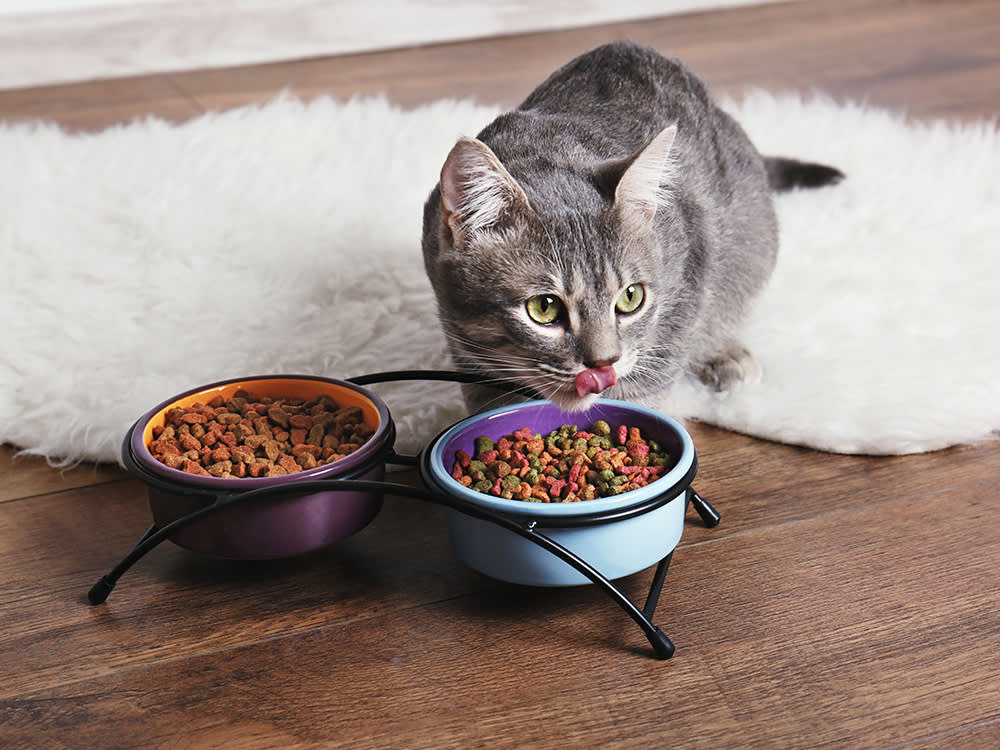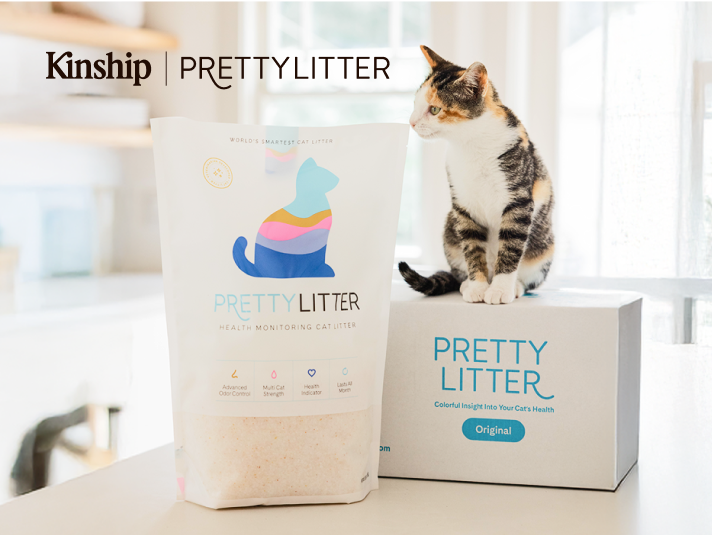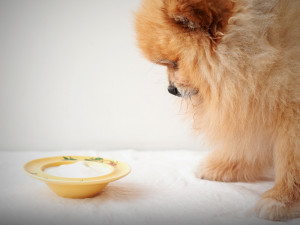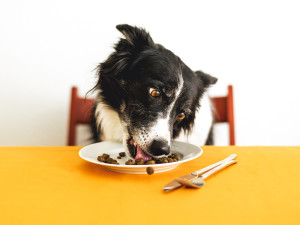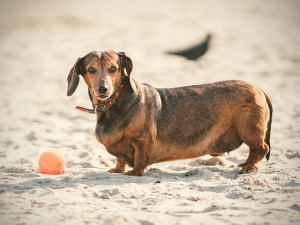Gut Feelings: How to Balance Your Pet’s Microbiome
The mind-gut connection isn’t just for people. Your dog or cat’s gut microbiome plays a big role in their health and well-being.
Over the past few years, no connection — with the expectation of maybe Tom Brady and Rob Gronkowski — has gotten as much attention as the one between your mind and gut. Not unlike the championship duo, each heightens the wealth of the other, as well as the success of their system. If you’ve ever had a “gut feeling” or felt butterflies in your stomach, you’ve experienced a limited version of this relationship. Inside every stomach is a mini-ecosystem — trillions of microbes and healthy bacteria that live in your gut producing neurotransmitters such as serotonin, dopamine, and GABA — that plays a key role in physical and mental health by regulating mood and cognition.
However, the organic phenomenon that is the “gut microbiome” is not reserved for solely humans — your pet endures the same subtle experience within their body every day as you do. Trillions more organisms (including bacteria, viruses, and fungi) also call your pet’s digestive tract homeopens in new tab, working away to break down food and generate essential nutrients.
Save on the litter with color-changing tech that helps you better care for your cat.
“The sheer number of organisms in a healthy gut is tremendous; any one of us has more organisms living in our GI tract than there are people on the face of the earth,” says Dr. Audrey Cook, a professor at the Texas A&M College of Veterinary Medicine & Biomedical Sciences. “Although we used to think that those bacteria were just along for the ride, we now know that they play a key role in maintaining health.”
Scientists have yet to discover the gut microbiome’s full impact, but they do know that it plays a large role in a pet’s overall health and well-being, impacting GI tract function, nutrient absorption, immune status, body condition, and many important hormonal responses.
What is Intestinal Dysbiosis?
A healthy pet’s microbiome can be compared to an ecosystem, such as a coral reef or rainforest, where organisms work both independently and in relationship with each other. Unfortunately, many things can disrupt this complex system of microorganisms. When that happens, it’s called dysbiosis. In simple terms, dysbiosis occurs when a cat or dog’s gut microbiome becomes imbalanced due to the loss of beneficial bacteria or the emergence of bad bacteria.
“These disruptors include many medications, particularly antibiotics; infection with GI tract pathogens; changes in diet; anesthesia; stress; and starvation,” says Dr. Cook. “It can take a long time for the microbiome to return to normal after an upset.” Over-treatment with antibiotics is one of the most common causes of intestinal dysbiosis in pets.
Dr. Robynne Chutkan, one of the leading gastroenterologists in the country and the author of The Microbiome Solution, shares these concerns. “The public still sees antibiotics as the life-saving miracle workers they were in the first part of the last century, not as the overprescribed menace they’re becoming,” she says. “We’re seeing the emergence of new ‘modern plagues,’ not just from infection, but from not enough microbes.”
The consequences of dysbiosis go beyond the gut. Health conditions linked to changes in the microbiome span the body and include allergies, inflammatory bowel disease, obesity, diabetes, and kidney disease. Though the full impact of dysbiosis is still unknown, there are a variety of symptoms that can occur because of the condition. “Dysbiosis in pets can result in weight loss, bloating, flatulence, poor appetite, and changes in stool consistency, such as diarrhea,” says Dr. Cook. “Some research in other species suggests that an abnormal microbiome may also contribute to numerous non-GI disorders, including obesity, mental illness, and type 2 diabetes.”
Finding the Right Balance for Your Pet
To avoid the effects of an unbalanced microbiome, there are several ways for pet parents to foster a healthy community of gut microorganisms in their pets.
1. Limit unnecessary antibiotics.
Both Dr. Cook and Dr. Chutkan recommend avoiding the unnecessary use of antibiotics, because even a short course of antibiotics can have a big impact on their gut microbiome. Antibiotics are prescribed to kill bad bacteria that cause illness or infection, but they also kill good gut bacteria in the process. “Dogs tend to go easy on the hand sanitizer and antibiotics and eat a less processed diet (all habits worth emulating),” says Dr. Chutkan. Ask plenty of questions and follow your veterinarian’s recommendations.
2. Nutrition is key.
The food choices you make as a pet parent can have a huge impact on your pet’s health. Commercial dog and cat foods contain the essential nutritional building blocks of carbohydrates, proteins, and fats, but there are a plethora of superfoods that can give your pet an added health boost. “Feeding a consistent, high-quality diet is also helpful, and we certainly want to avoid introducing pathogens such as Salmonella by feeding [certain] raw foods,” notes Dr. Cook.
3. Probiotics offer benefits.
Probiotics are live, good microorganisms found in some foods and supplements that can contribute to a healthy gut microbiome. Some ways probiotics can improve your pet’s well-being include:
Aiding digestion
Boosting the immune system
Preventing and managing diarrhea
Promoting overall intestinal health
Reducing inflammation
Adding “good” bacteria
Many pet products claim to contain probiotics, but pet parents should consult with a veterinarian before choosing one of these options, as some are poorly researched. Similarly, some commercial pet foods contain prebiotics, such as soluble fibers that feed good bacteria, but there is only limited evidence of these foods effectively improving the health of the gut microbiome.
4. Live dirty and skip the groomers.
It’s not just okay to be a little sweaty and dirty; it’s actually great for you and your pet’s microbiome and overall health. “We need exposure to dirt and germs (bacteria, fungi, protozoa, etc.) to train our immune systems to recognize friend from foe,” says Dr. Chutkan. “Not enough exposure to germs, especially when young, leads to a confused immune system that tends to overreact. The result is allergies and autoimmune diseases.”
While feeding your pet and giving medications, pay attention to the effect they may be having on the gut microbiome. Though an altered microbiome can have negative consequences, a GI tract full of good microorganisms can be the key to a healthy pet.
